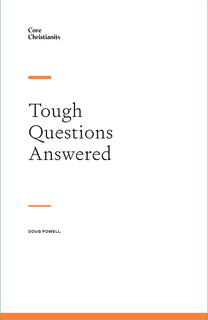Our five senses tell us many things about the world. You can close your eyes, pinch your nose, or plug your ears, but in general they are always collecting data. We rely on our senses so much that sometimes we think of them as our best source of knowledge. And because science is based on observation, it’s a way of precisely articulating what our senses detect. With all the marvelous advantages science has given the world, sometimes people make the mistake of scientism, which is thinking scientific knowledge is the best—or even the only—kind of knowledge there is.
But there are many ways we know things that don’t have anything to do with science. For example, take the phrase Science is the best kind of knowledge. What scientific observation did that come from? None, of course. It’s a philosophical statement. And if a person tried to make a case for it, they’d have to reason by using philosophical arguments, not scientific experiments. Reasoning, therefore, is a way of knowing things. Intuition (such as knowing there is such a thing as right and wrong) is another.
The fact is, we all believe things that our senses cannot detect. Have you ever actually seen gravity? No, only the effect it has on objects. Have you ever seen a number? No, only its symbol. How about the laws of logic? Just try to say something that makes sense without intuitively using them! How about love or justice or time? Believe in those? We all do.
Sometimes we rely on authorities for our beliefs. Has a doctor ever diagnosed you with strep throat? If so, did you believe them? Do you believe George Washington or Julius Caesar ever existed? The documentary evidence for them leaves little doubt. You may not have read all the material, but there are many historians who have, and we trust their authority.
Imagine you’re on the jury of a murder trial. You’re being asked to believe in an action you didn’t see, and to examine the effects of that action to determine its cause. You’ll probably be presented with scientific evidence. Unless you are a forensic scientist yourself, you’ll have to trust the authority of the expert witness to understand it. But that’s not all to the case. The lawyers will present reasons and use logic to guide you to the truth (hopefully!). And the reason you’re on the jury is because the action—murder—is wrong, and you are part of the process of seeking justice. Science, reasoning, moral intuition, and reliance on authorities all intersect, contributing different ways of knowing the truth. And that should be the goal of all belief: truth.
When it comes to God—an immaterial, transcendent being—the reason to believe is much the same as believing in anything else. Does believing in God explain what we see in the world? Does it make sense of my experience? Does a theistic worldview create contradictions or incoherencies? This last question depends on which God is in view, of course, but that’s a different question.
In the case of the God of the Bible, God is the maker of all things outside of himself. He’s not only the maker of everything that can be known, but all the ways by which we can know them. Logic, the uniformity of the universe, morality—all the intellectual tools we use to evaluate and judge claims must come from God. And that means that without God, you can’t justify how you know anything at all. Therefore, although we can’t see God, we’re justified in believing in him by necessity.
This is an excerpt from our Core booklet, Tough Questions Answered. Request your free copy here.






